Why state schools Supt. Ryan Walters sees an opening to push Christianity in schools
Earlier this year, a group of Oklahoma evangelical pastors began meeting to discuss ways they could push for displays of Christianity inside public schools. Emboldened by the recent election of state schools Superintendent Ryan Walters, the pastors believed the time was right to push the boundaries on the separation of church and state.
Calling itself the Oklahoma Advisory Council on Founding Principles, the group finalized a list of goals in March, which included having all students “learn of their accountability to the Creator” and that classroom prayer “will lead to better educational outcomes in Oklahoma,” according to a copy obtained by The Oklahoman.
Implementing any of these ideas would likely draw a legal challenge. But that would all be part of the plan.
The group listed its top priority as having one of the legal challenges to its efforts reach the U.S. Supreme Court, where they "overturn the ill-advised and unconstitutional 1962 Engel vs. Vitale decision," a reference to the court's ruling that school-sponsored prayer violates the Establishment Clause of the First Amendment.
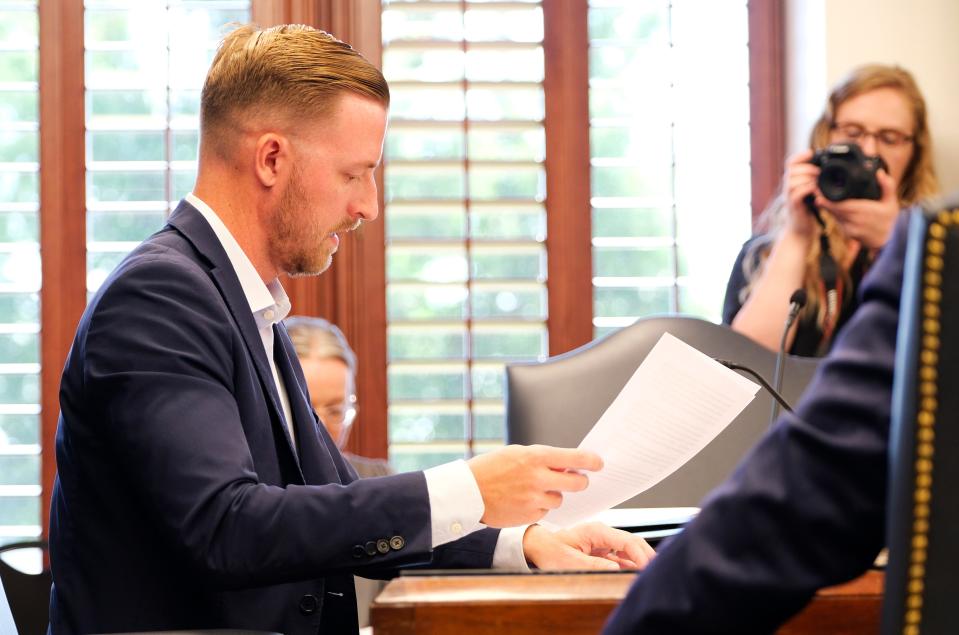
On Thursday, Walters endorsed the Oklahoma Advisory Council on Founding Principles and said he supported their desire for daily prayer in school and a public display of the Ten Commandments in every classroom.
Walters, a Republican, called the separation of church and state a “false narrative” that needs to be changed.
Politicians in Oklahoma have long promoted ways to insert Christianity into government and public life, sometimes as an easy way to drum up headlines and votes. But some conservatives across the country increasingly believe the political and legal climate is now more amendable to dismantling the separation of church and state, especially after recent decisions by the current U.S. Supreme Court.
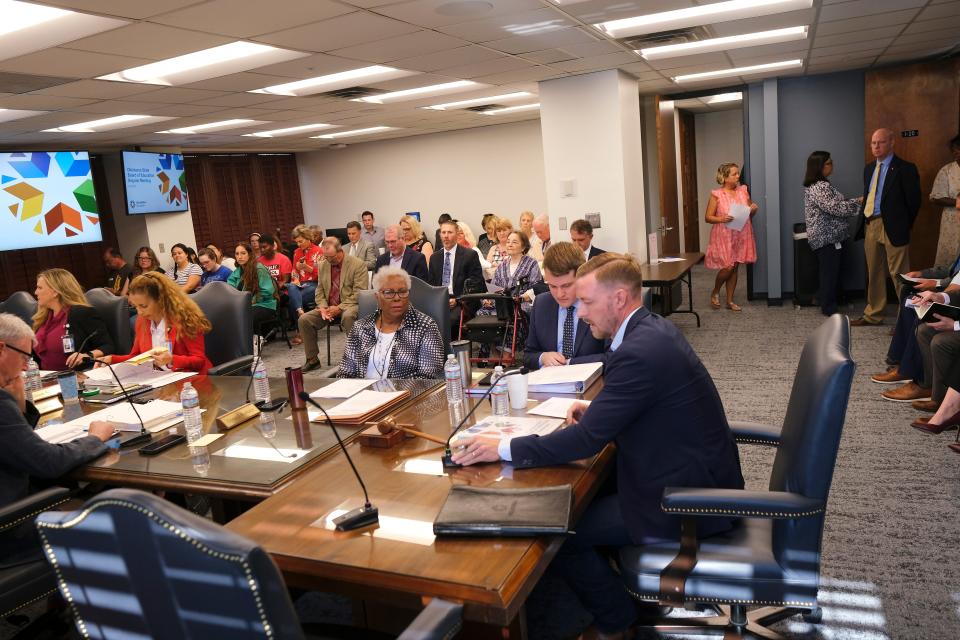
“It is very alarming,” said Tamya Cox-Touré, executive director for the American Civil Liberties Union of Oklahoma. “We are seeing a trend regarding Superintendent Walters and the lack of separation of church and state.”
While Walters took no action on Thursday to try and enforce the council's recommendations, he said proposed laws and regulations would soon follow.
“We are looking at all options (to see) how we can ensure that religious liberty is protected in our schools,” Walters said.
More: Matt Langston sticks to playbook as top adviser for state superintendent Ryan Walters
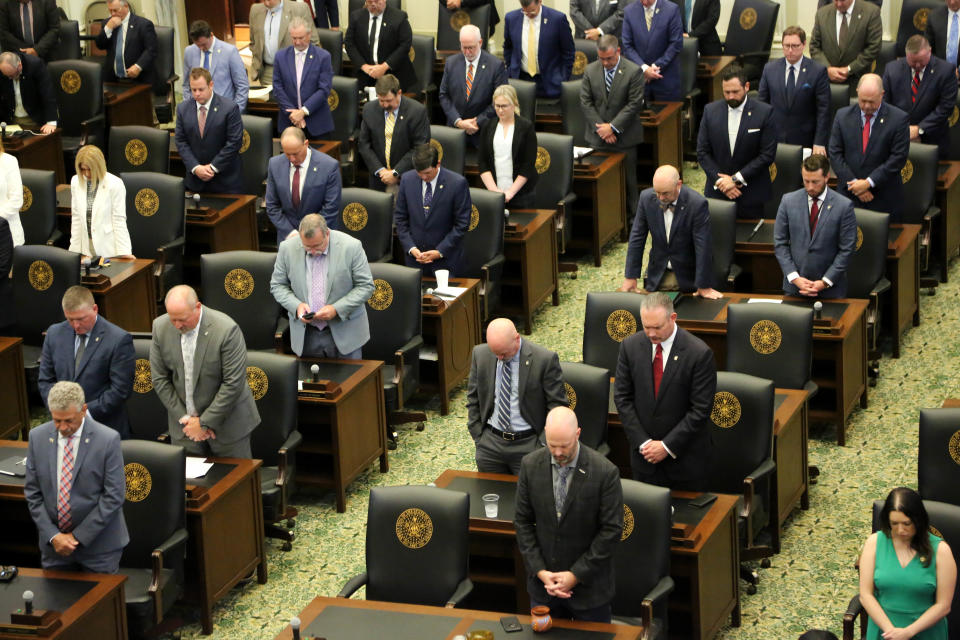
Court has struck down past attempts to display Ten Commandments
Republicans in Texas this year proposed a bill to require a Ten Commandments display in each classroom, believing a legal challenge before the U.S. Supreme Court would go in their favor. The bill passed the Texas state Senate but died in the House.
Texas lawmakers said they were encouraged by last year’s U.S. Supreme Court decision that allowed a Washington high school football coach to lead team prayers after each game.
Oklahoma lawmakers tried to display the Ten Commandments outside the state Capitol in 2015, but the Oklahoma Supreme Court struck down the effort.
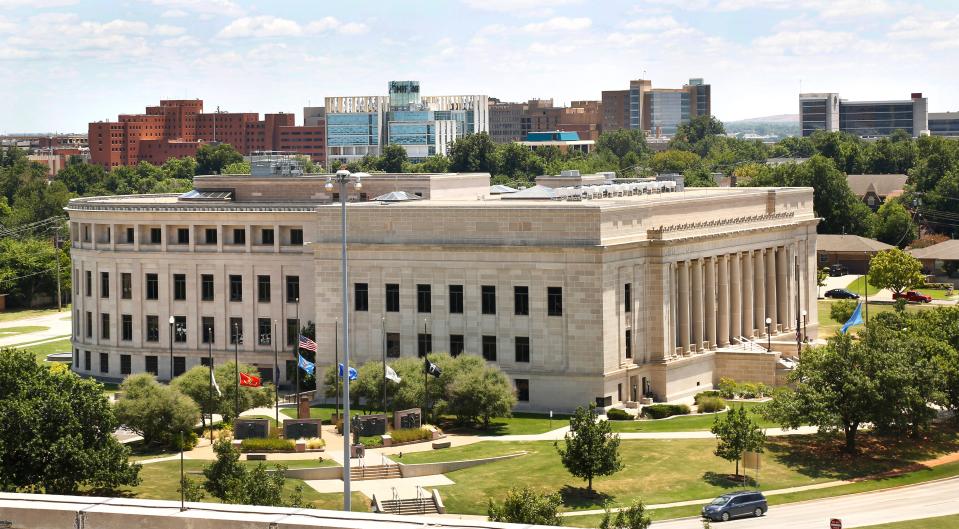
Oklahoma’s constitution says no public money should be used to benefit or support a church or religion.
“We have a strong state constitution regarding that taxpayer money should not be going to support religious activities, which makes me confident the (Oklahoma) Supreme Court would reject this effort,” Cox-Touré said about Walters wanting the Ten Commandments in every classroom.
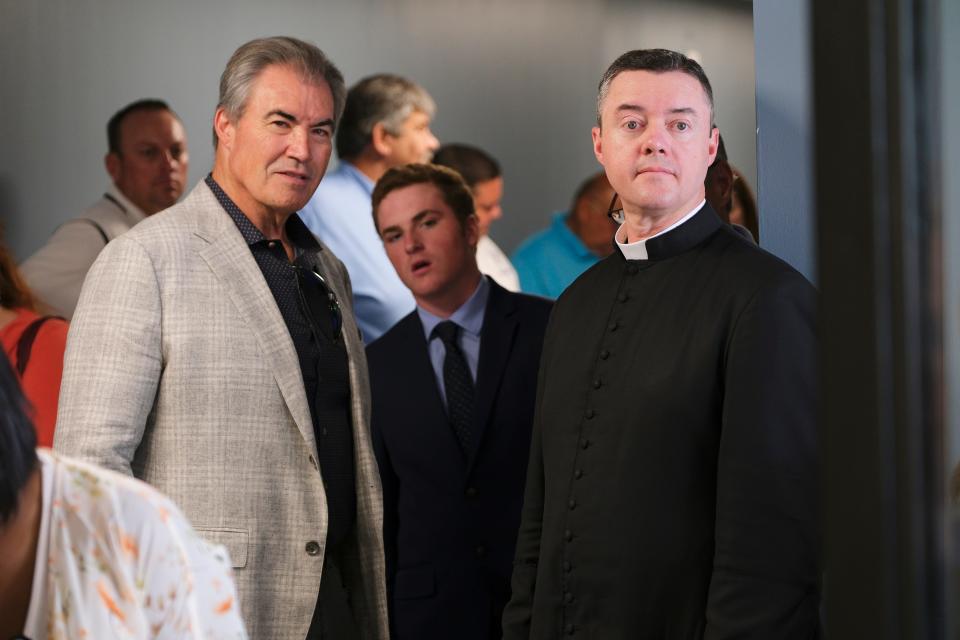
But some believe the Oklahoma Supreme Court might now be willing to allow religious displays.
Of the seven justices that voted to remove the Ten Commandments from the state Capitol in 2015, three have since been replaced, and two of the new justices were appointed by Gov. Kevin Stitt, whose appointees have trended more conservative.
The question of tax dollars for religious purposes is also playing out in the state’s recent approval of a Catholic charter school, a decision many believe will end up before the U.S. Supreme Court.
Christian nationalism is the goal of some council members
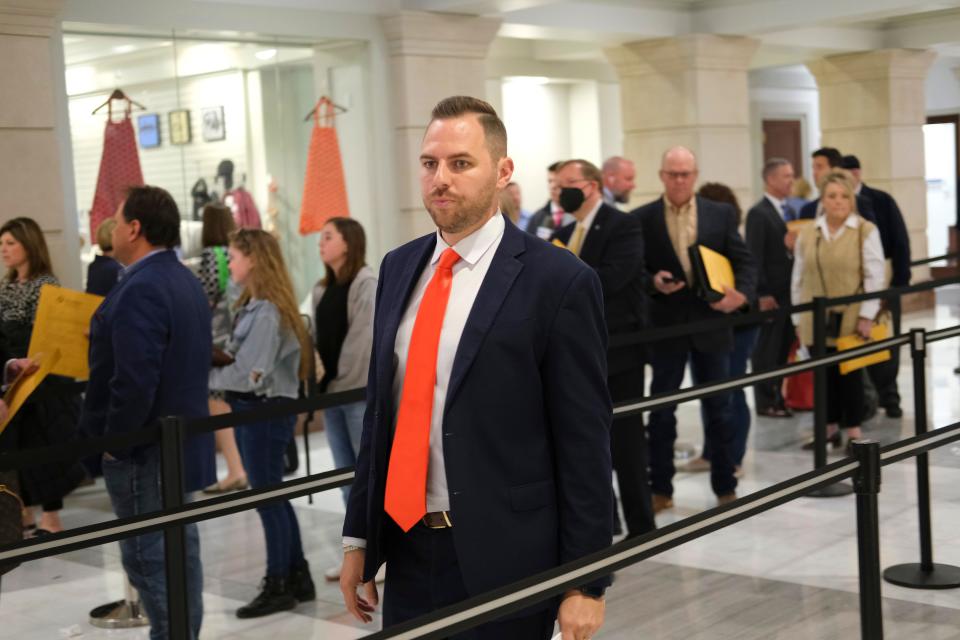
Some members of the Oklahoma Advisory Council on Founding Principles, which Walters said was independent of the state Department of Education, have openly pushed for the state and federal government to embrace evangelical Christianity.
One of its members, Jackson Lahmeyer, is a Tulsa pastor who unsuccessfully ran for the U.S. Senate last year and has started an organization called “Pastors for Trump.” Lahmeyer has openly supported Christian nationalism, believing the nation’s laws should be rooted in Christian values.
“We are at war in this country; it is a spiritual war between good and evil,” Lahmeyer said last year.
Enid pastor Wade Burleson, another council member who praised Walters at Thursday’s school board meeting, believes all Oklahoma students should learn 10 virtues, including "faith."
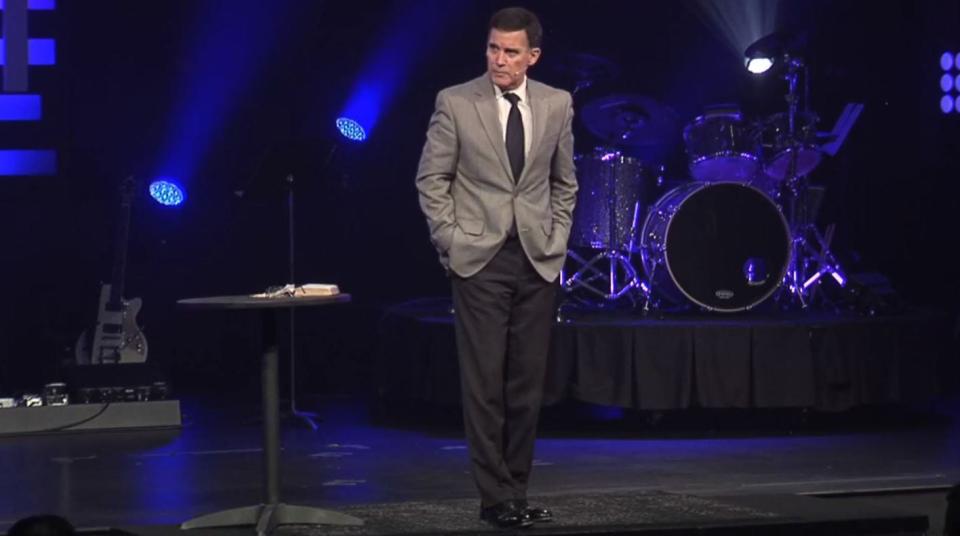
"To the degree our children are trained in these virtues in the public classrooms of America is the degree to which we will safeguard freedom," Burleson wrote on his website in April.
When Walters presented the council's recommendations at Thursday’s board meeting, he handed out a list of committee members, including Masood Abdul-Haqq of Oklahoma City, a Muslim writer and community leader. Some people at the board meeting pointed to Abdul-Haqq's inclusion as proof the council was not solely focused on Christianity.
Abdul-Haqq did not respond to The Oklahoman’s request for comment about being a member, but he resigned from the council on Friday.
“After careful consideration and consultation with my advisors, I decided that it was in my best interest not to participate in this committee after the meeting I attended in April,” Abdul-Haqq wrote in a resignation letter first reported by KOKH Fox 25.
Reporters asked Walters after Thursday's meeting what he thought about a Muslim prayer rug being displayed in a classroom. The superintendent would not directly answer the question.
“These are the types of questions we want to make sure and answer," Walters said. "We want to make sure the state isn't sponsoring atheism by rejecting any other signs of faith inside the school."
This article originally appeared on Oklahoman: Some see a chance to promote Christian faith in Oklahoma schools

